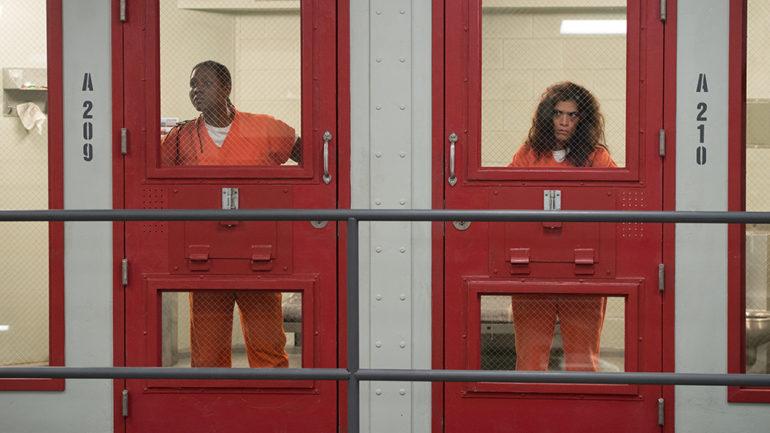Emmy Rules Changes: TV Academy Clamps Down on Category Switcheroos
By Michael Schneider
LOS ANGELES (Variety.com) – The Television Academy is putting its foot down on category flip-flops. Going forward, programs will be allowed to switch categories (say, from comedy to drama competition) in the Emmy race just once. After that, they’re locked in — and won’t be allowed to categorize again.
That’s one of the latest changes to the Emmy competition, as the TV Academy released its formalized rules and regulations on Tuesday for this year’s competition. As TV series have become a bit more complex (comedies with a heavy dose of drama, and vice versa), it’s become harder to categorize many of them.
That’s why, a few years ago, the TV Academy clarified that half-hour shows will be automatically deemed comedies, and hour-longs as dramas, unless those shows petition to make a change. And with many hour-longs touting themselves as comedies and a rise in half-hour dramas, those requests have become commonplace.
But then there are also shows that have evolved and changed their classification over time. Most notably, Netflix’s “” began its life competing in the comedy category, but later moved to the drama field. Under this new rule, it won’t be able to move back (should it suddenly go back to more laughs).
The specific rule: “A program that has entered in one category one year may appeal to move it to another category in any subsequent year, with the understanding that the change locks it into that category without the opportunity for another recategorization.”
Among other changes, the Academy has also clarified eligibility for voice-over performance vs. narration. Moving forward, live-action narrators who play characters (such as Patton Oswalt on “The Goldbergs” or “Jane the Virgin” narrator Anthony Mendez) will now compete against animated voice-over stars in the voice-over category. Here’s the specific rule: ” If the narration is performed in the first person as a character rather than the narrator, even if credited as narrator, it should be submitted in the character voice-over category.”
Until 2014, that category had been combined with the outstanding narration category. But since they were separated, Mendez was nominated in the narration category in 2016 and 2015. But Outstanding Narration has generally been focused on narrators of non-fiction programs, such as 2018 winner David Attenborough (for “Blue Planet II”), triggering the change.
In the other most notable switch this year, the TV Academy has renamed the Outstanding Reality-Competition Program category to the more streamlined “Outstanding Competition Program.”
Meanwhile, for the Lady Gagas and Method Mans of the world, “An eligible entrant may use their legal name or a pseudonym, but whatever name is used must appear in the credits or verified by the production.”
Additionally, the rising popularity of theatrical “Fathom” releases, where shows are sometimes sneak previewed in hundreds of theaters on one date, has been frowned upon by the Academy. Going forward, those exhibitions would disqualify a program for Emmy eligibility, “unless it meets the requirements for Exceptional Merit in Documentary Filmmaking.”
And the TV Academy also made official a practice that has already taken hold: Anthology series like Netflix’s “Black Mirror” may enter either as a series or may choose to break up the series into individually entered stand-alone programs. That has become the popular choice for anthology shows, particularly as “” has won the Outstanding TV Movie award two years in a row.
Speaking of “Black Mirror,” most of this year’s key changes were already announced in December, including what we’ve deemed “Black Mirror Rule” for TV movies. After Netflix’s Charlie Brooker anthology series won that TV Movie Emmy two years in a row, the org has clarified that “TV movie” entries have to be at least 75 minutes long. (That means the category’s 2017 winner, the “Black Mirror” episode “San Junipero,” which was only 61 minutes long, would not have been eligible to compete under the new guidelines.)
Also announced in December, the Academy put a tighter leash on what might be eligible for short form awards. Possibly inspired by “An Emmy for Megan,” the meta short form series from Megan Amram that was all about Amram’s attempt at winning an Emmy, the Academy adopted “new vetting procedure to identify Emmy-competitive entries in the Short Form categories on nomination-round ballots. Panelists, randomly selected from a member pool, will evaluate these entries.”
Another rule change benefits linear networks looking to compete with shows that premiere late in the Emmy eligibility window. Because streaming services like Netflix and Amazon can drop an entire season of episodes at the last minute — making them eligible for Emmy consideration — the Academy is now giving linear networks the same ability to come in at the last minute by “posting episodes on a distribution platform in advance of the episodes’ airdates in cases where they otherwise would be ‘hanging’ or ineligible because they are scheduled outside the eligibility period.”
Those episodes can even just be posted on a private distribution platform accessible only to TV Academy membership, as long as they don’t change in content once they air — and as long as the episodes actually air for the public sometime in June.
Also new: A category for Outstanding Music Composition for a Documentary Series or Special (Original Dramatic Underscore), and a split of the choreography award into two separate juried honors: Outstanding Choreography for Variety and Reality Programming (Variety Series, Variety Special, Structured Reality, Unstructured Reality and Competition Program), and Outstanding Choreography for Scripted Programming (Comedy Series, Drama Series, Limited Series and Television Movie).
Additionally, music supervisors will now be permitted to vote in all music categories (previously music supervisors only voted for Outstanding Music Supervision); and voting in stunt coordination categories has been revised to go through a three-step process.
The 71st Emmy Awards will air Sunday, September 22, 2019, live on Fox, while the Creative Arts Emmys will be presented on Saturday, September 14, and Sunday, September 15.

